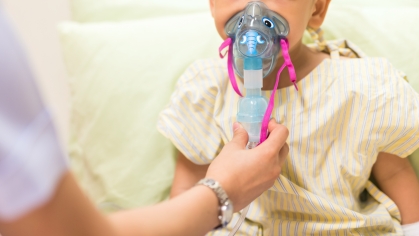Rutgers, RWJBarnabas Health and Woods Services to Open Care Center for People With Intellectual and Developmental Disabilities and Autism

New Jersey’s first center of its kind aims to improve health outcomes and reduce the overall costs of care for an underserved population
People with autism and intellectual disabilities historically have a life expectancy nearly 20 years less than the general population, in part because of a lack of specialized care.
To address these health inequities, Rutgers University Behavioral Health Care, the RWJBarnabas Health network and nonprofit organization Woods Services are establishing the first integrated primary and behavioral health care center for people with intellectual and developmental disabilities and autism in New Jersey.
The New Jersey General Assembly recognized the critical need for intellectual and developmental disabilities services by supporting a grant of $800,000 toward the startup costs for the initiative. The center, which is expected to open in early 2024 at Robert Wood Johnson University Hospital Hamilton, will serve people who live in central New Jersey, with future plans to expand services to other areas of the state.
“This new partnership highlights our shared commitment to increasing the capacity of existing primary care and behavioral health providers serving individuals with [intellectual and developmental disabilities], ensuring that these patients receive the attention and specialized care they deserve,” said Frank A. Ghinassi, president and chief executive of Rutgers University Behavioral Health Care and senior vice president of behavioral health and addictions services at RWJBarnabas Health.
People with intellectual and developmental disabilities experience disparities in access to care because of communication barriers, mobility issues, a shortage of providers with specialized skills and inaccessible medical offices. The center will improve health outcomes and reduce the overall costs of care for children and adults with intellectual and developmental disabilities, autism and related behavioral and medical conditions, many of whom currently face a lack of services.
Many have multiple severe conditions that require highly specialized services and careful care coordination across medical, social and community services.
The center will address and overcome these barriers by providing innovative, comprehensive and coordinated care across primary, specialty and behavioral health settings. Patients of the center may receive comprehensive medical and behavioral services onsite or through outpatient telehealth and in-home visits. The addition of telehealth will extend the program’s reach and remove barriers to care that are unique to people with intellectual and developmental disabilities and autism populations.
“Building a robust program of experts and a network of providers dedicated to caring for the [intellectual and developmental disabilities] population is a major step forward in addressing the gaps in care that these patients face all too often,” Ghinassi said.



